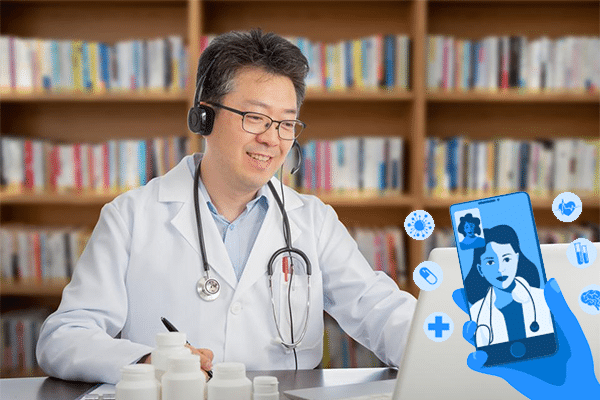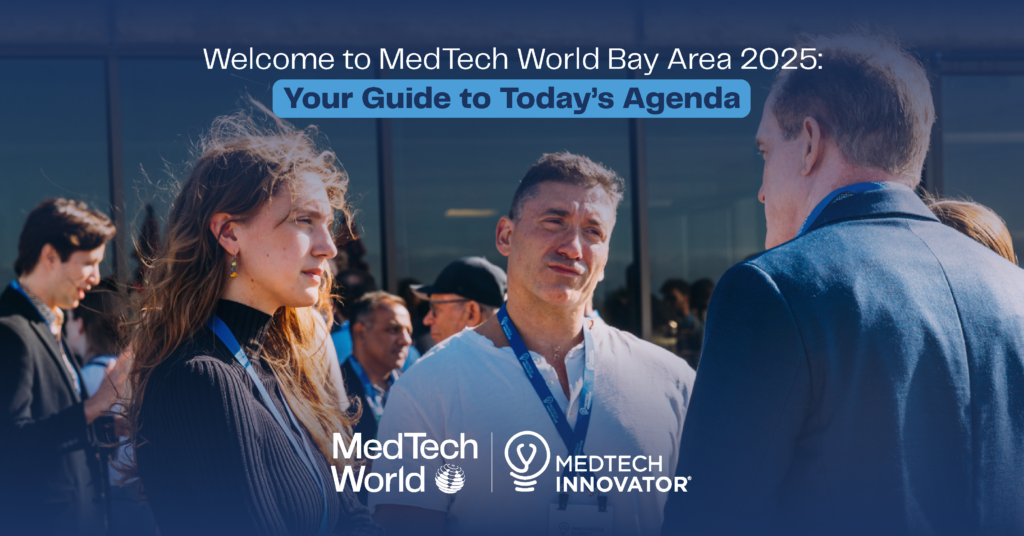
Michael Joe Cini
3rd May 2021
Remote consultations – tips for healthcare professionals
Med-Tech World outlines our top tips for healthcare professionals navigating the world of remote consultations
Words by Dr. Ryan Grech and Dr. Dylan Attard, Clinical & Health Tech Advisors for MedTech World and two of the co-founders of Digital Health Malta.
In the previous article, Dr. Ryan Grech and Dr. Dylan Attard discussed the importance of proactive Digital Health regulation and standardisation enforcement.
2020 has certainly been the year for telehealth. Telehealth long existed before COVID but it was probably the pandemic that highlighted the role it can play in a new healthcare pathway. We think that eventually, telehealth would have become as mainstream as it is today however, COVID certainly accelerated this and perhaps is the silver lining in all of what we’ve been enduring.
We think that telehealth is here to stay irrespective of having COVID under control. This is because it is not a replacement to traditional healthcare but rather is an adjunct that can improve care and efficiency as well as convenience. And let us not forget that telehealth is not only practitioner and patient contact but healthcare professionals themselves can also consult with each other around the clock ensuring best practice.
So whilst we’re going to see increasing adoption of telehealth in the new healthcare pathway in the coming weeks and months both in remote and central locations the remote consultation part of it can take a while to get used to. We’re going to explore 3 ways in which healthcare practitioners can make the best out of said consultations.
Prep yourself and your patient
Whilst a few traditional practices already do this, most do not and this is because it is something difficult to implement especially in a busy waiting room or when most of your patients are walk-ins. However, telemedicine allows a much easier way of achieving this which will ultimately benefit both the patient and healthcare practitioners. It ultimately allows consultations to be more focused on the presenting complaint rather than asking the usual questions of previous medical history or any allergies. Furthermore, the doctor can already get an idea as to why the patient would like to have a consultation allowing better scheduling – if you know that someone is coming to you with a problem relating to mental health you can dedicate more time to this patient if you know that the consultation before is just to ask what vaccinations they need to travel to India. These questions can also sometimes serve as a screening questionnaire for those that may require urgent care or may be better served if they visit the clinic.
Make it personal whilst being professional
Eye contact is imperative. Whilst it is difficult sometimes to know how you’re being perceived on the other end of a call, placing your webcam at eye level can help make the conversation more natural. This is extremely helpful as it keeps both yourself and your patient as engaged as possible. You may need to put your laptop on books or boxes to do so. It’s also important to consider the basics of video production, lighting is important. A light behind you is a big no-no as it shines towards the camera. Also, avoid wearing colours that may not translate well onto a camera. For example, wearing white with a white background, although it doesn’t help if you have extremely contrasting colours either. These are probably things that as healthcare professionals we usually do not worry ourselves with but it is becoming part of our practising reality and therefore we must adapt to offer the best experience possible to our patients. Remember, whilst by now most of you may have done tens or hundreds of online consultations, for your patient this may be the first time.
Make it easy on patients
Finally, consider how hard this experience must be for patients, and suggest they include family members to help keep track of your instructions.
In addition, “I would always recommend that physicians make sure that they have a phone number,” Redmon said. “So in case the internet connection is problematic—in case the video call is dropped—to know in advance that this is the right number, that this is the number that this person can be reached on.”
You also need a break
Telemedicine allows better time management, allows you to consult individuals from all over the country if not the world and perhaps there’s less time-wasting allowing you to fit in more patients. It is important though that despite all this you also take care of yourself to avoid fatigue.
- Try to organise your schedule with a mix of video and physical sessions – screen time can be exhausting.
- Make sure that you have ergonomic surroundings, if we’re being honest this should be both for video consultations as well as your physical ones. Your chair can make or break your comfort, perhaps stand up for a consultation or two.
- Try and use your laptop over the phone, a larger screen may be easier to grasp each other’s expressions and maintain eye contact.
- Make sure to keep yourself hydrated and fed
- Take a break in between consultations, get up, stretch your legs or walk a bit around the room.
Confide in your colleagues, see what works for them. Remember though, what works for them might not necessarily work for you as well.
Remember, the more comfortable you as a practitioner will be, the more comfortable your patient will be. Like it or not, telehealth will become an increasingly more important part of the new healthcare pathway and this includes remote consultations. Is there anything that you think we should have mentioned?
Med-Tech World: 18th-19th November 2021
The Med-Tech World conference, which follows a successful digital event in 2020, will run from 18th-19th November 2021 and will highlight innovations and developments in digital health across the globe. With so many countries realising the potential for exponential growth, Med-Tech World will address the opportunities and challenges driving this multi-million forum – embracing the potential for technological innovation to change the face of medicine in this global sector. Register your interest here!




